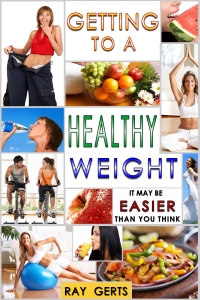I'm not to that point "yet", but I'm close. The problem with sugar is that manufacturers use sugar or a chemical substitute in everything they make. Go to other countries and or a real bakery and see if they put sugar in bread, but if you real the labels in grocery stores you might not be able to find a loaf of bread with some type of sweetener. To go one step further, I don't think you can find any food that is manufactured without having sweetener added. Is it any wonder that so many people have diabetes.
Anti-sugar fever seems to be on the rise. Last week, a friend who does not have type 2 diabetes asked me about my diabetes diet: “How many carbs can you eat without raising your blood sugar?” Another pal is on a 21-day-cleanse – no sugars allowed. And folks in my neighborhood recently formed a support group for going cold turkey on sugar, which one member claimed is harder than giving up cigarettes: “No one wants you to smoke, but they’re happy to see you eat a slice of birthday cake.”
With the publication of books like Gary Taubes’ The Case Against Sugar, in which he indicts sugar for health problems like obesity, heart disease and, of course, diabetes, the health-conscious are taking heed.
I have to admit, all of the hysteria is kind of amusing to me. To treat my type 2 diabetes, I abandoned sugar ages ago, so not eating the sweet stuff is second nature to me by now. Scanning labels for sugar’s aliases – glucose, simple syrup, fruit sweetener – has also become an ingrained habit. And after years of listening to people question my choices – “Are you sure you can’t have a bite?”, “One cupcake surely won’t hurt?!” – the idea of people without type 2 diabetes jumping onto the anti-sugar wagon seems tinged with irony.
Although I’m unconvinced that sugar is the root of all evil or the root of all disease, I’m also pretty sure that it’s not just “empty calories.” And while some diabetes groups preach sugar can be eaten “in moderation” my personal glucose monitor doesn’t agree.
So how hard is it to abandon sugar? That depends, I think, on how much sugar you’re accustomed to eating. If you’ve got a five-Coke-a-day habit, you’re probably going to have a rougher patch than if you only indulge in dessert on weekend nights.
Wherever you fall on the sugar spectrum, if you are thinking of going cold turkey, here are a few tips:
Seek support. Support groups can help if you’re having trouble going it alone. Talking about what you miss – chocolate chip cookies, mint ripple ice cream, a sugar high – might make it easier. After all, misery loves company.
Journal. Keeping a journal can keep you honest. Dieters have had a lot of success jotting down their daily intake. Logging your daily sugar intake before you try to stop might be a similarly powerful wake-up call.
Read labels. Sugar lurks in the darnedest places – from sugar cured bacon, to low-calorie fruit spreads to sugar tobacco-cured cigarettes. Familiarize yourself with its many guises and read carefully.
Substitute. If you need a hit of sweetness, I find frozen blueberries can do the trick. Or a little whipping cream mixed with vanilla. While you don’t want to trade in everything for artificial sweeteners, if you like the taste, ten-calorie Jello can make a good transition treat.
Forgive yourself. Going cold turkey on sugar isn’t easy. If you do give into an Oreo cookie today, remember that there’s always tomorrow.
Sugar is a habit and can be just as bad or as addictive as cigarettes. The problem with sugar, like anything else like salt or fats, the body can only process small amounts of it in a day. So, if you have a weight problem you probably have been consume too much sugar or other sweeteners, salt or animal fat which is also in dairy products. Once your liver becomes saturated with anything you have been eating in excess, your liver will slow-down it’s functions. In other words, work slower than normal. When that happens, the liver will turn more animal fats and sugars into body fat and process less than normal. That’s why you add body fat.
Once your liver has slowed down that’s when you have to stop “sugar” all together. Your liver will recoup over time, but you have to "clean up" your diet.
If you really want to lose your body fat than look for my e-books at the websites listed below. You'll get information on Healthy eating, exercise, and diet. Instead of spending hours on the internet reading dozens of posts, you can save time by picking up one of my e-books.
There are two e-books. “How Bad Do You Want To Lose Weight?” is available at all the online bookstores selling for $1.99. Go to any of the websites below and search the title to find my e-book. This book gives you all you need to lose weight without spending money on gym memberships, diet plans or meal plans. Look for my book. at Amazon.com, B&N.com, iBooks, Kobo.com, Scribd.com, or Gardner Books in the U.K.
My new e-book is available on Smashwords.com, just type “getting to a Healthy Weight” in the search box at the top of the home page.








